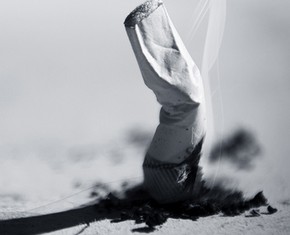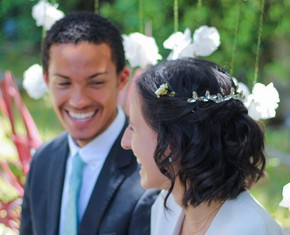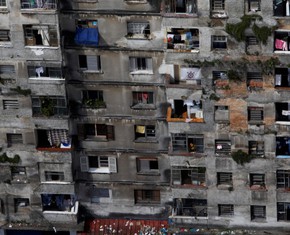The views expressed in our content reflect individual perspectives and do not represent the authoritative views of the Baha'i Faith.
Great is the station of man. Great must also be his endeavors for the rehabilitation of the world and the well-being of nations. – Baha’u’llah, Tablets of Baha’u’llah, p.174.
Do you want a better world?
It seems like such an easy question, too easy even. It seems like a question that could even appeal to our selfishness and small mindedness. But asked in the right way it leads us to confront the limitations we place upon our conscious aspirations. It shows us that the things we think we want in society and in our lives are compromises and substitutes for deeper yearnings we may despair of fulfilling.
Here’s what I want: a society in which each person’s needs are met, in which everyone receives what they are due, in which our days are passed in joy and contentment, in which truth is not obscured by illusion, in which all people live in peace with one another.
People cherish these sorts of lofty dreams in their hearts, but many may not consciously think they’re possible to ever realize. Certainly, they are goals of the Baha’i Faith. But in their place, most people take up less ambitious but more attainable goals, like obtaining a high paying job, coercing hostile groups and individuals into submission, filling our lives with frivolous entertainment, or voting for politicians that least offend our sense of justice. When we convince ourselves that these sorts of things are what we really want, we begin to believe that there is no greater treasure than these half-measures and shortcuts to individual and collective happiness. The pain of knowing the impossibility of our greatest desires drives from our memory and our heart what we most deeply want. Instead, we start to perceive them as the fantasies of naive dreamers or ideologues.
I think we should be unashamed to have extremely high standards for the kind of society we want to live in. It’s not irrational to strive for things that are beyond the horizon of what’s possible today. It’s okay, in other words, to dream big.
One thing that I love about the quote at the top of this article is that Baha’u’llah sees a logical connection between lofty aspirations and human nature:
Great is the station of man. Great must also be his endeavors for the rehabilitation of the world and the well-being of nations.
Greatness is part of who we are. But it’s not easy to see that in our everyday life. As we go about our day, doing the things we typically do, “greatness” is rarely the idea that comes to mind. “Smallness,” “pettiness,” and “insignificance” usually seem more appropriate. But small things can add up to much larger things if we look at them from a wider perspective. A crazy dream today might be a modest proposition 25 years from now.
There’s an old saying that touches on this theme: “Rome wasn’t built in a day.” The gradual transition of a handful of small Italian villages into the city at the heart of a mighty empire would have looked pretty mundane if you looked at it up close. It would have looked like a bunch of ordinary people going about their normal day. But whether they were aware of it or not, the small contributions of lots of people added up to something that would have seemed implausible at the beginning.
This is why we shouldn’t be content to just think in the short-term about minor goals, and give our hearts over to trivialities. We can consider which small victories today or tomorrow might make it easier to accomplish not just a good or satisfactory state of affairs, but the best situation possible in this world. We can reserve our passion for goals that we really want to achieve.
So what is my desire? I want my life to help bring about a society in which all people become both spiritually and materially prosperous. I try to make everything come back to that. I might often stray from my target, but that’s where I’m aiming. What’s your desire?
















Comments
Sign in or create an account
Continue with Googleor